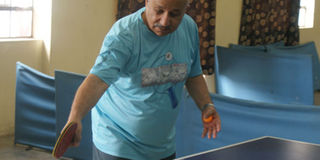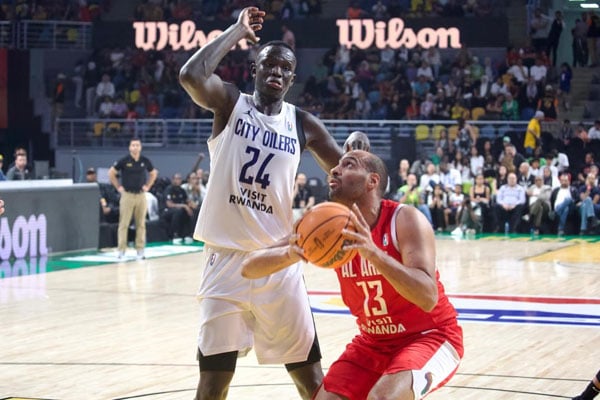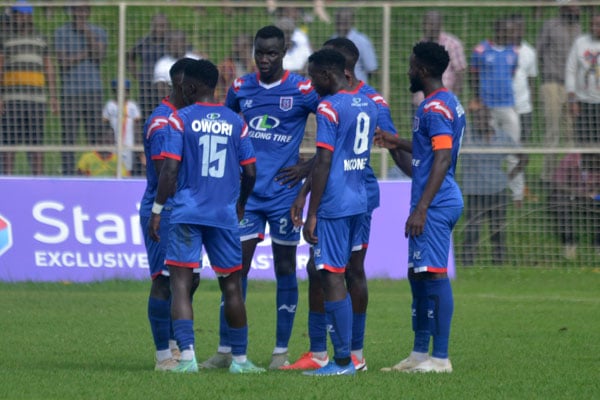Egyptian technical expert drills Uganda’s table tennis coaches

Dawalatly demonstrates to participants how to handle a racket and position themselves on the table at Kololo SS yesterday. PHOTO BY Sande Bashaija
What you need to know:
Table tennis. Ahmed Dawalatly is conducting a six-day Level 1 coaching course at Kololo Secondary School.
KAMPALA.
Ahmed Dawalatly has called on Ugandans to stop using the lack of equipment as excuse for failure to develop table tennis.
An International Table Tennis Federation (ITTF) technical expert, Dawalatly reckons the game in Uganda can grow even without modern equipment. “You can use any table to play the game especially when dealing with kids who are just learning,” Egyptian Dawalatly said during the opening of a six-day ITTF Level 1 coaching course at Kololo Secondary School on Monday.
“You don’t need an ITTF certified table to introduce kids to the game. Dining tables, school desks and any other kinds of tables can serve the purpose,” added the former international player.
The course, which has attracted close to 20 participants, including top national team players, ends on Saturday. On Monday, the Egyptian took the participants through requirements for handling young players and dealing with injuries.
Yesterday, the trainees got their fitness severely tested with Dawalatly taking them through practical sessions involving racket handling and body movement.
“At the end of this, we hope to increase the knowledge of coaches in Uganda. The game is changing with new coaching techniques coming up everyday and Ugandans need to keep up with the pace,” noted Dawalatly. “For the game to improve in the country, you must have good coaches and also recruit very many youngsters. It’s important that kids are introduced to the game by age six.”
Uganda Table Tennis Association (UTTA) president, Robert Jjagwe, said he lobbied Uganda Olympic Committee (UOC) to facilitate the course as one way of reviving the game.
“When we are done with this training, we shall assign each of these coaches to handle at least five schools,” Jjagwe, who took over UTTA leadership last year, revealed. “We need at least 120 schools to play table tennis in the country. If we have such numbers, I am sure the game will go to the next level,” he added.
The coaching course participants will sit examaminations at the end of the training and Dawalatly is hoping all of them will pass.
“Since most of them have played the game to a certain level, the exams should be very easy,” he assured.




